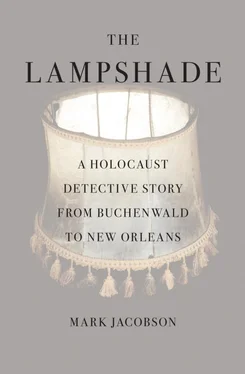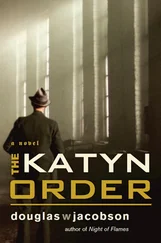It was at the Flatbush library that Shiya first encountered Robert Heinlein, Ray Bradbury, and many other science fiction writers whose ideas often clashed with what he was hearing in the yeshiva. Soon he was reading straight science writers like Stephen Jay Gould and Carl Sagan. “Carl Sagan,” Shiya said. “Carl Sagan caused a lot of spiritual warfare inside my head.
“I was in a bind; as my thinking got more liberal and secularized, the community, the Orthodox community, was getting more Orthodox. The first generations of Jews that came to America, like your relatives, wanted to fit in, to assimilate. They succeeded. Jews were more confident, secure that the knock on the door in the middle of the night was really a thing of the past. That was truly wonderful. It also made the Orthodox feel free to become more Orthodox. They became more protective of what they felt were their true roots, although very few Orthodox practices would have been recognizable to Moses, or at least a Moses who had never been to the shtetls of Europe in the eighteenth and nineteenth centuries.
“The past, the life of the shtetl, this whole kind of imagined life with its fundamentalist attitude, took over and gradually I began to realize that religiously I’d become this totally run-of-the-mill, nicely well-adjusted Conservative American Jew, living among these aliens. I was reading evolutionary biology and they were telling me the world began fifty-seven hundred years ago and believing otherwise was a chil’ hashem, or an affront to God.”
It all came to a head when Shiya’s marriage to his first wife began to break up. “We were married in the Orthodox tradition, but increasingly I felt no longer part of that. My ex and I fought bitterly about it, how I was no longer religious enough. I decided I didn’t want to be there anymore. The problem is, the way the community had become, once you leave, the door slams behind you. All of a sudden my ex was making it very difficult for me to see my three children.
“My parents took her side because at a certain point, in the transformation from the rationalist thinker to the fundamentalist, religion and a specific way of practicing is all that matters. That way of thinking is beyond me. I would never presume to know exactly what God wants for humanity and the Jews. The zoom on my Google Earth doesn’t pull back that far. The fact that I was a cantor and had been for years, leading services every Friday and Saturday, every High Holy Day, the fact that I have to sing, that for me singing is something totally necessary, and that the cantorial liturgy is the music I want to sing—that in many ways I felt more Jewish in spirit than ever didn’t matter. I might have been singing the same prayers they sung, but I was doing it in a Conservative temple, so that wasn’t good enough.”
The end, as far as his family was concerned, occurred when Shiya remarried, to his wife, Jen, who was raised Catholic. “Jen converted, she went to the mikvah, consulted with many rabbis, but this was never going to cut it for my family. They declared me dead.
“Believe me, you haven’t lived until you’ve had your mother and father sit shiva for you.”
This was the man who greeted me at the door of the shul on Gramercy Park South that late winter day in 2007. He was just saying good-bye to some hip-looking Manhattan kids he’d been tutoring for their bar mitzvahs, just like Rabbi Adler and his successors had tutored me. We sat down in the temple banquet hall and talked for a few moments before Shiya said, “So let’s see.”
The lampshade was still in the box with the Sugar Ray stamps. Shiya lifted it out and held it in his hands, then turned it around. He held it up to the overhead light.

Shiya Ribowsky in shul
“It’s parchment, that’s for sure.” Shiya has handled a lot of parchment in his life, parchment inside tefillin, mezuzahs, and the Torah itself. The lampshade material reminded him of all that. “But it is thinner, much thinner.” He held the lampshade closer to his face and turned it around again. Then he took a deep breath and sat heavily into a chair, placing the lampshade on the table in front of him.
“This is the saddest thing I’ve ever seen in my life,” he said.
He looks at twenty thousand pieces of murdered human beings, and this lampshade Skip Henderson bought from Dave Dominici on Piety Street in New Orleans is the saddest thing he’s ever seen in his life? “You don’t really think this is real, do you?” I asked.
Shiya kept staring at the lampshade on the table in front of him. “There’s one way to find out. The DNA.”
He went out to his car and came back with a surgical scissors and some small plastic bags. “Mind if I take a couple of samples?” No, I said, I didn’t mind.
• • •
With Shabbos soon approaching and a few of the congregation members beginning to arrive for services, I left Shiya and headed back to Brooklyn. The F train was packed with the usual multihued crew. The blacks—harried office workers getting looser for the weekend, mixing with slouchy high school hip-hoppers—would mostly get off at Jay Street to change for the A train out to Bed-Stuy and beyond. With them went the various Caribbeans, headed to the far reaches of Crown Heights, to Utica Avenue. The few straggler Hasidic black-hat Jews, cutting it too close for comfort on a Friday afternoon, would stay on until Borough Park and Midwood, along with Bengalis and Pakistanis. Ditto the Dominicans and Puerto Ricans, who lived up on McDonald Avenue. The Russians, more of them every day, it seemed, their outward demeanor stolid and put-upon, would ride to the last stops, where Brighton meets the ocean. There were the “professionals,” too, mostly white and mostly young, slogging home from midtown cubicles. Many of them would get off at my stop, which is Seventh Avenue in what used to be called South Brooklyn but now like everything else around, is called Park Slope, a nomenclature dictated by the real estate market.
Sitting among the daily gaggle, the lampshade in its box on my lap, it was no great reach to assume that many of these people, myself included, might never have been born had Hitler’s killers succeeded in winning the war. In the brand-new world envisioned by the Reich planners, this trainful of supposed Lebensunwertes Leben —“life unworthy of life”—would be replaced by a whole other kind of humanity, riding not in the subway but in the sleek comfort of a Deutsche Liner, a posture-perfect array of second- and third-generation volk in their Hugo Boss tailored daywear, medicated for extreme performance by I.G. Farben, checking their holdings in a tightly edited merger of the Wall Street Journal and Der Stürmer .
This subway cacophony, with its sticky floors and zombie iPod listeners, was so different from the Valhalla the Nazis foresaw for themselves. Down here, nobody needed Plato, or Darwin, to tell them the world was a finite place, without enough to go around for everyone with the deluded temerity to call themselves human. Democracy, even the illusory sort practiced in America, was a dangerous, inevitably suicidal thing. Sooner or later these F-train untermenschen would rise up like the nasties in Metropolis, demanding their wholly undeserved share. But in the dream-life of the Reich, with all of Africa and the Russian commies dead or forced into slave labor, some already working on moon colonies organized by Werner von Braun and other rocket wizards, there would be no commodities crisis, no global warming, no economic criminality. It was a fact of natural law that superior groups would triumph over and subjugate the inferior. So why not just make it the law of the land, remove the hypocrisy? And when this happened, the planet would be returned to a primally clean Eden for the New Chosen People, at least after the perceived competition, the viral Jews, with their rootless, conspiratorial culture, had been eliminated.
Читать дальше













